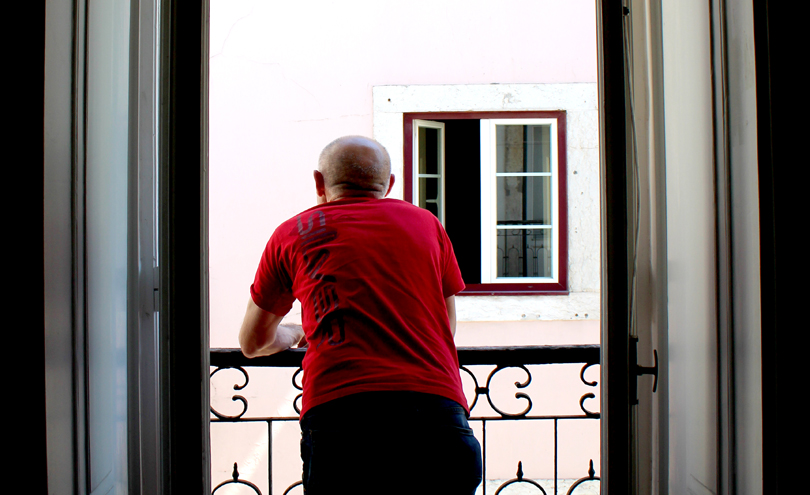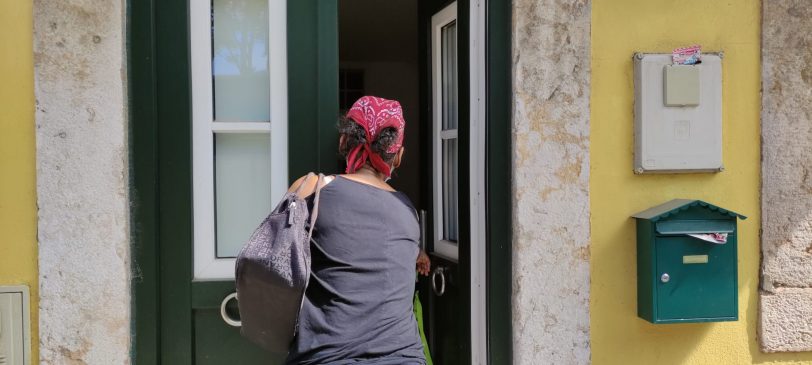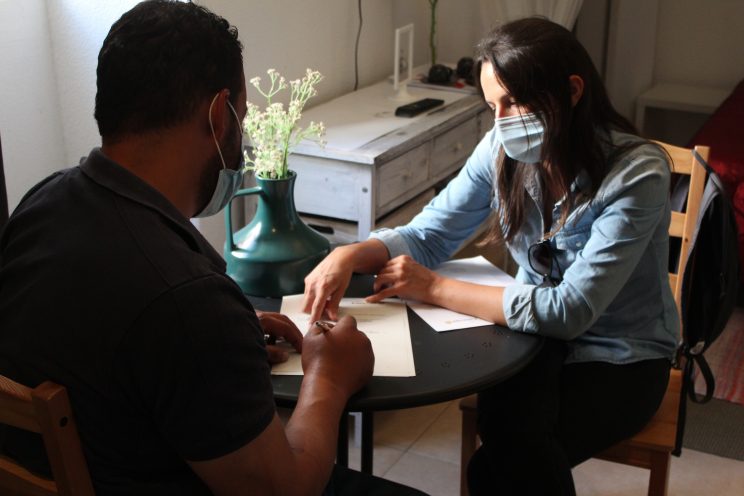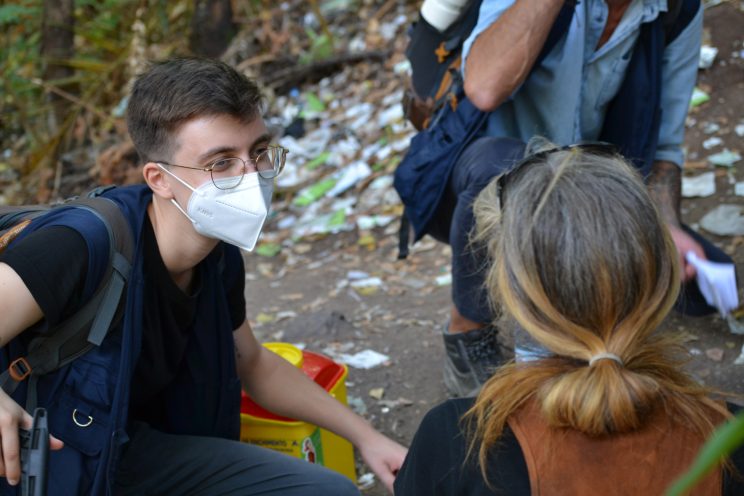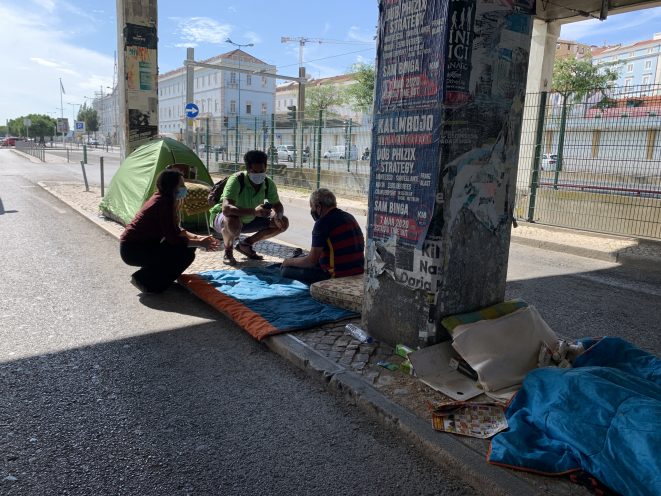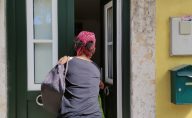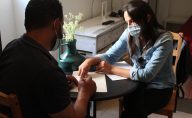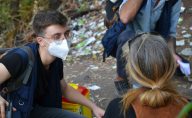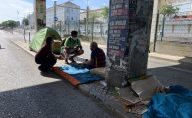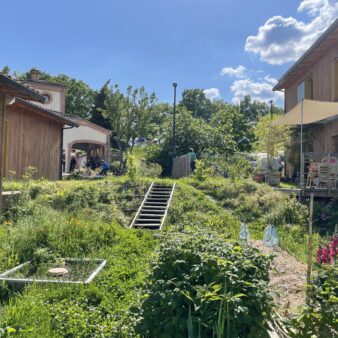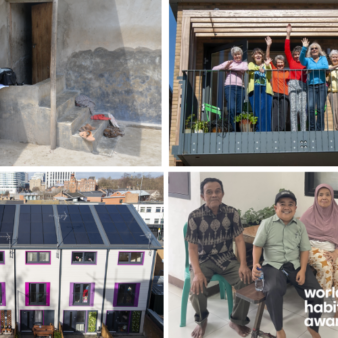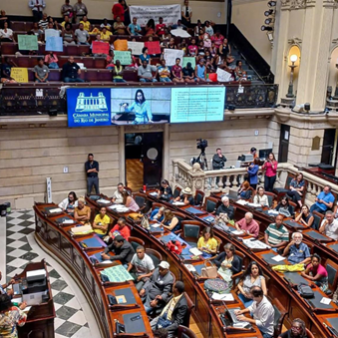Our lead partners in Lisbon are CRESCER.
Joined the campaign: November 2021
Who’s involved? CRESCER is a harm reduction and homelessness NGO that works across the city of Lisbon and its surrounding areas. They have been delivering projects to support vulnerable and hard-to-reach people since 2001.
In twenty years, CRESCER have grown to deliver a range of innovative interventions for people with experience of homelessness, including Housing First, support for substance misuse, employment training and migrant support. CRESCER are expert in adopting a harm minimisation approach, and all their work focuses on respecting each individual’s personal objectives and choice. They aim to take support to where people are – and not the other way round.
What has happened so far? Portugal has a progressive approach to homelessness and, in particular, using harm reduction responses for people with substance misuse issues and managing multiple disadvantages (such as homelessness, mental health and engagement with the criminal justice system). From the early 1990s, Portugal developed strategies to focus on prevention, treatment and reintegration of individuals rather than prioritising punitive measures and criminalisation. In 2001 the consumption of psychoactive substances was decriminalised.
National and municipal strategies to address homelessness were developed – including the Portuguese National Strategy on Homelessness, of which CRESCER played an important role in developing. The Municipality of Lisbon has also played an important role in pushing forward effective policies to end street homelessness and since 2015 has made significant investment into housing policies such as Housing First.
New surveys conducted in 2020 under Portugal’s National Strategy on Homelessness found that 8,209 people were homeless in the country, a 26% rise since 2018. In Lisbon – it was calculated that there were 3,780 people street homeless. This data comes from NPISA Lisbon – a partnership of public and private entities coordinated by the Municipality of Lisbon that work with people who experience homelessness in the city.
CRESCER currently run É UMA CASA, Lisboa Housing First, which began with seven houses in 2013 and currently has 120 units and is developing plans to work with surrounding municipal governments to grow further. Based on a harm reduction approach, key aspects of this approach are pragmatism, humanism, and respecting choice. During the COVID-19 pandemic this project expanded rapidly – as self-contained housing first tenancies enabled people to safely self-isolate. The number of units available was insufficient to meet the demand however, and many people remain in emergency housing as a result of the pandemic.
CRESCER have also been successful in delivering employability projects for people with experience of homelessness and social isolation. É UMA MESA is a European Social Fund (ESF) funded project that provides training and skills for people working in a high-quality restaurant. For those involved in the project – permanent housing is a key part of their support. During the COVID-19 pandemic, despite the restaurant closing to the public, the training programme continued and with support from Lisbon municipality, the kitchen converted to provide over 600 meals a day for people in the city. In 2021, this project was awarded a Silver Prize by FEANTSA, for their work towards ending homelessness.
What’s next? Despite positive moves towards addressing homelessness in the country – Portugal still has a housing crisis and the COVID-19 pandemic has left many street homeless people stranded in emergency shelters. Low levels of income, poverty, unaffordable rents and the ongoing disconnect between public services remains a huge driver in pushing people into street homelessness.
CRESCER have several key objectives for the coming year including:
- expanding their É UMA CASA Lisboa Housing First provision into surrounding municipalities;
- growing their award winning É UMA MESA employability projects to new sites in Lisbon;
- developing innovative rapid intervention outreach team;
- increasing focus on homelessness prevention projects; and
- gathering increased evidence and data of the success of their approach.
